Essay 311 • Jul 18th 2018
- by Molly Steele
In the weeks leading up to July 4th, tens of thousands of people all over the U.S. rallied against the Trump Administration’s separation of children from their parents after crossing the border. Public outcry for many was demonstrated by taking to the streets, organizing collective force, and setting up occupations at detention centers around the country. For some, it was a way of expressing outrage, for others, a chance to show solidarity with those caged inside, by having noise demos and waving to the prisoners looking out from their windows. In a few cases, deportations were successfully blocked by these occupations, which included people from all walks of life setting up camps, building gardens, and sticking together. In Atlanta, folks extended the march to the detention center, where tents were erected, a rudimentary printing press made Abolish I.C.E. posters for the kids, soccer games spilled out into the streets, and a couch was brought in. It was a joyous force created together, resisting and brushing off the cops as they flexed, repeating a script through a megaphone.
While many photo series we see of protests include masses of people carrying creative signs or selfies in front of burning cars, the minutiae of these spaces is often passed over. It is in these moments, however, that the political imagination is stoked, bonds are formed with friends new and old, where people in a combined movement take risks together that open new possibilities. From the delivery of several pizzas by a distant observer in the Twittersphere, to a nap on the concrete, to the free tattoos or the letting off of a firework, it is in these small, overlooked breaths that we see the underpinnings of a new world, a world without borders.


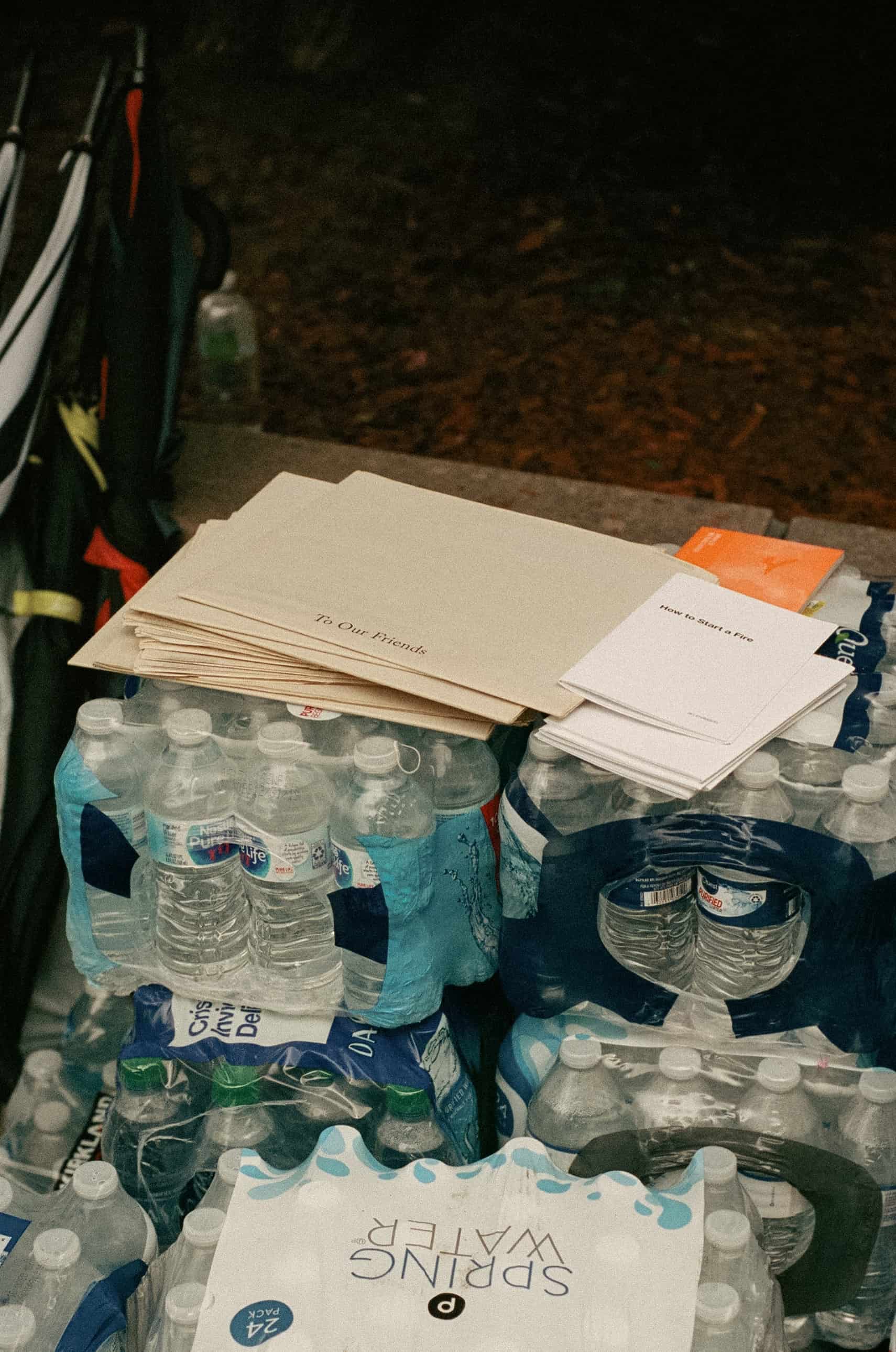



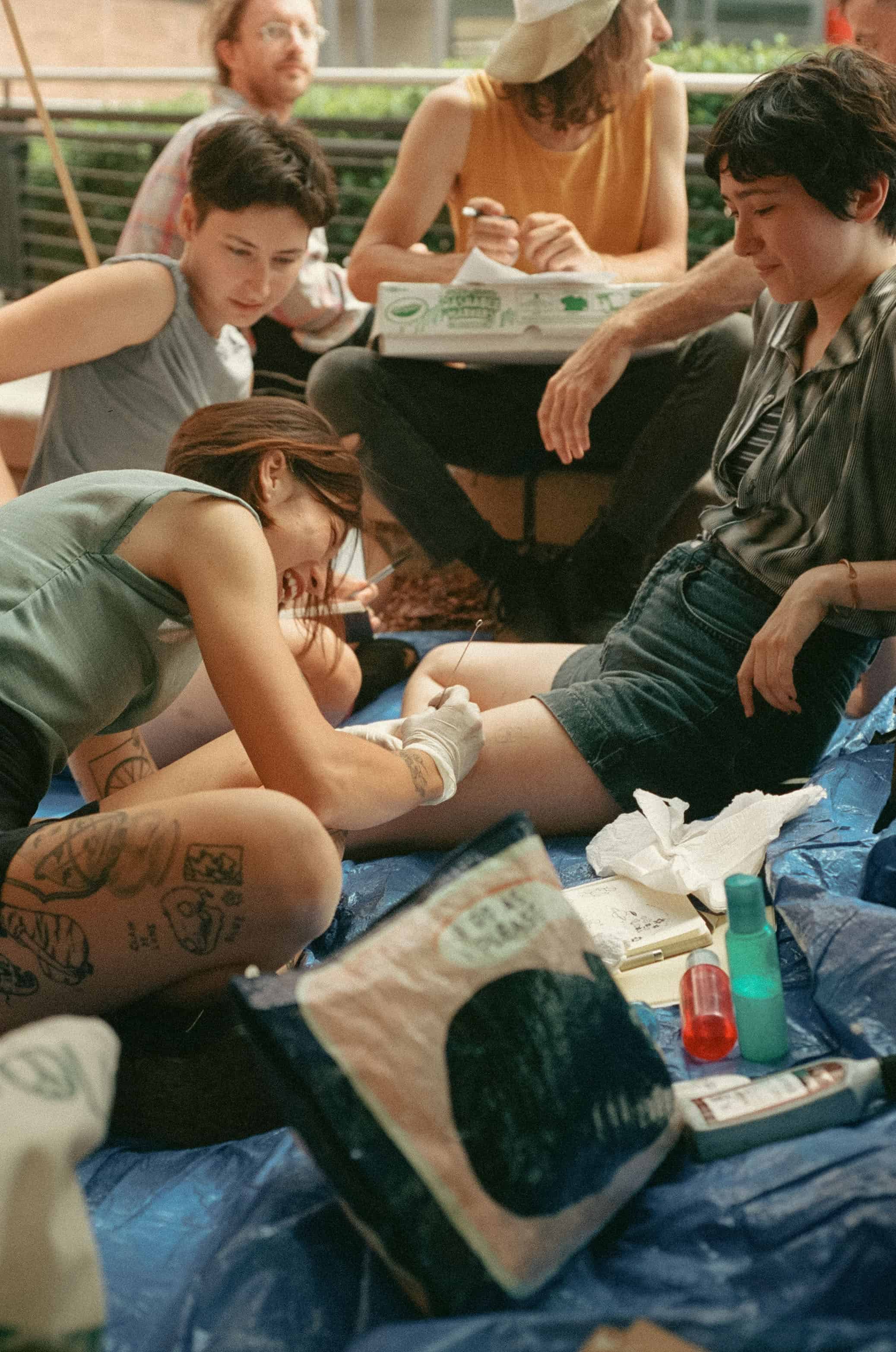


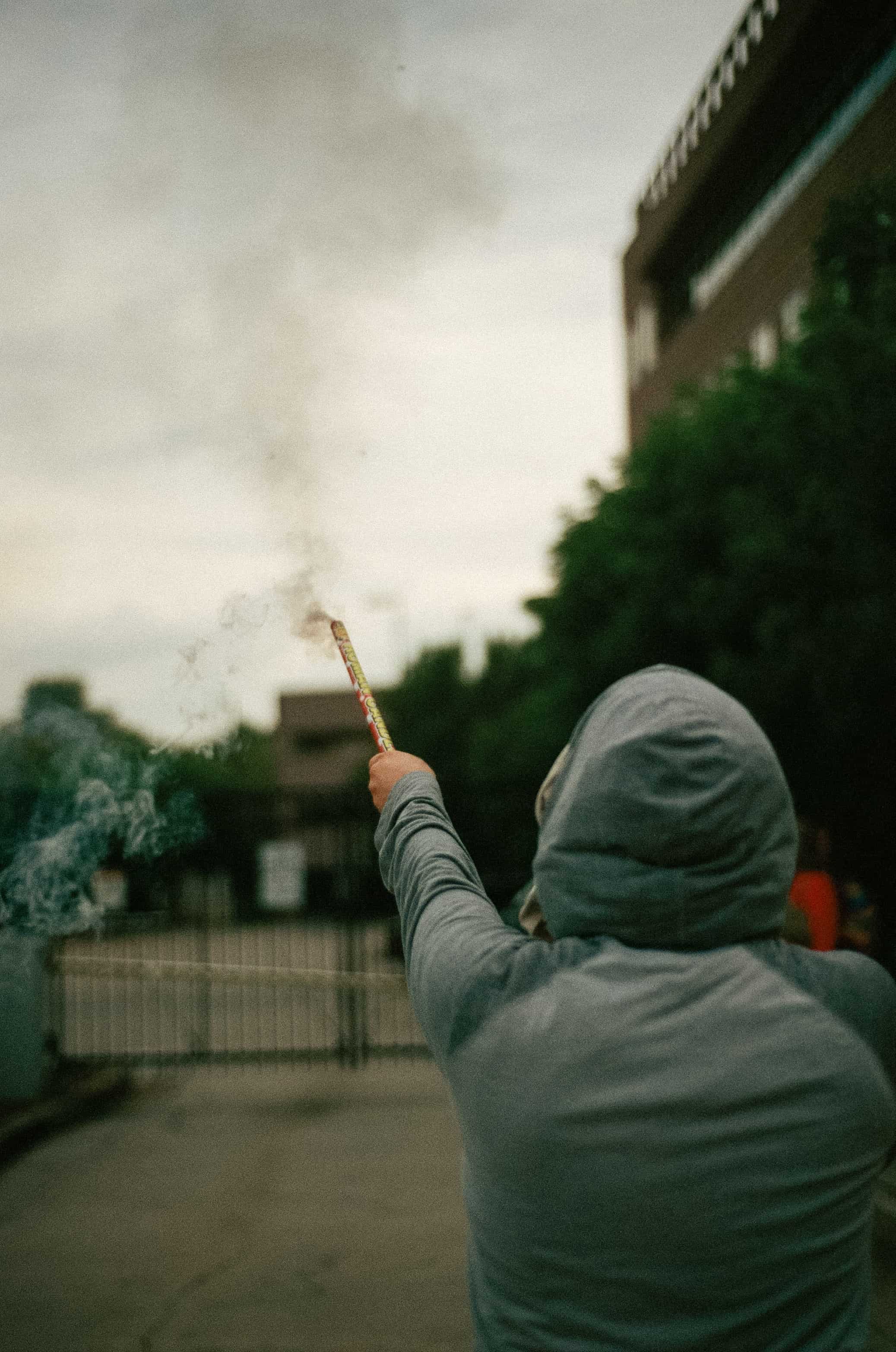






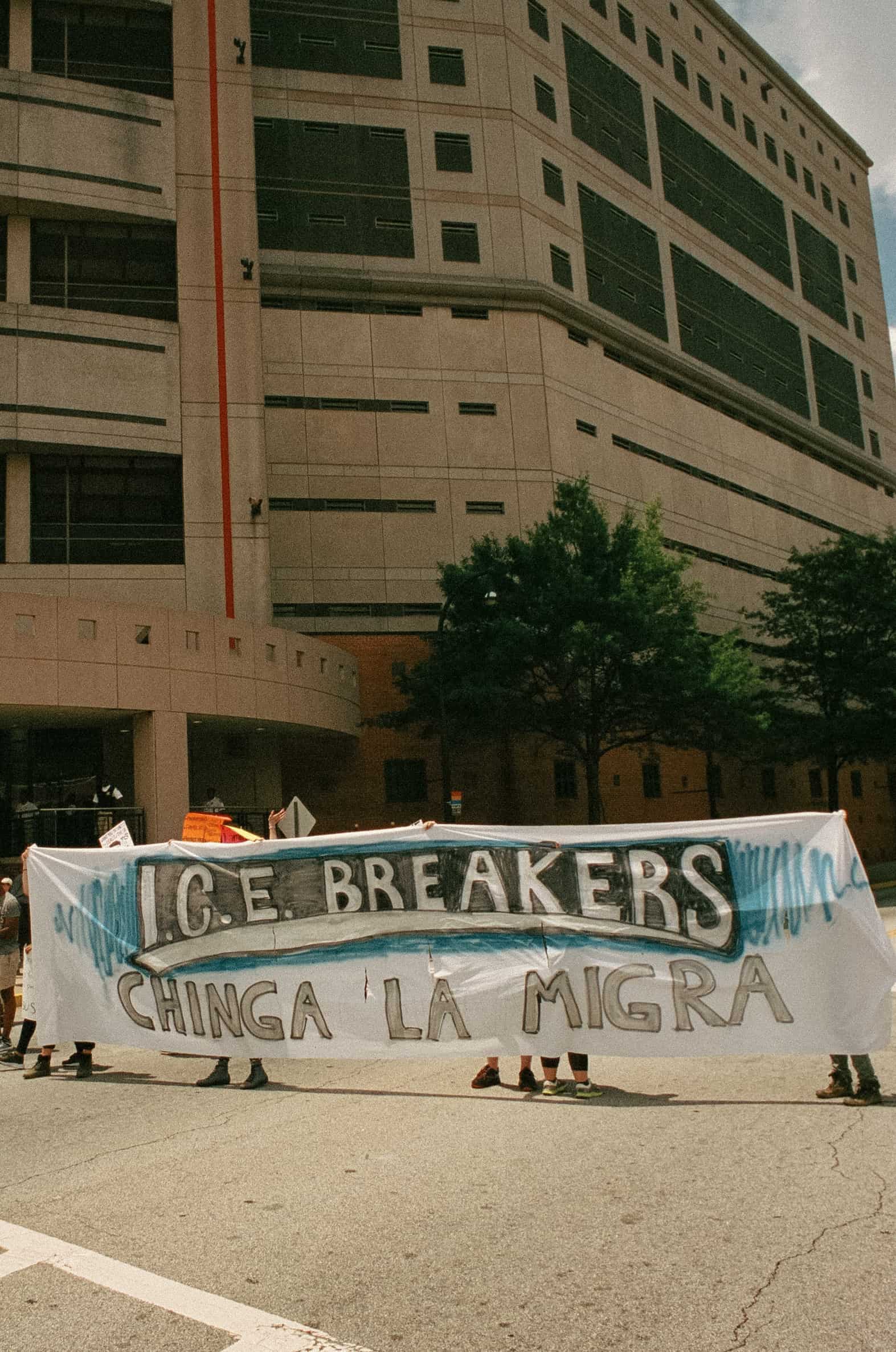



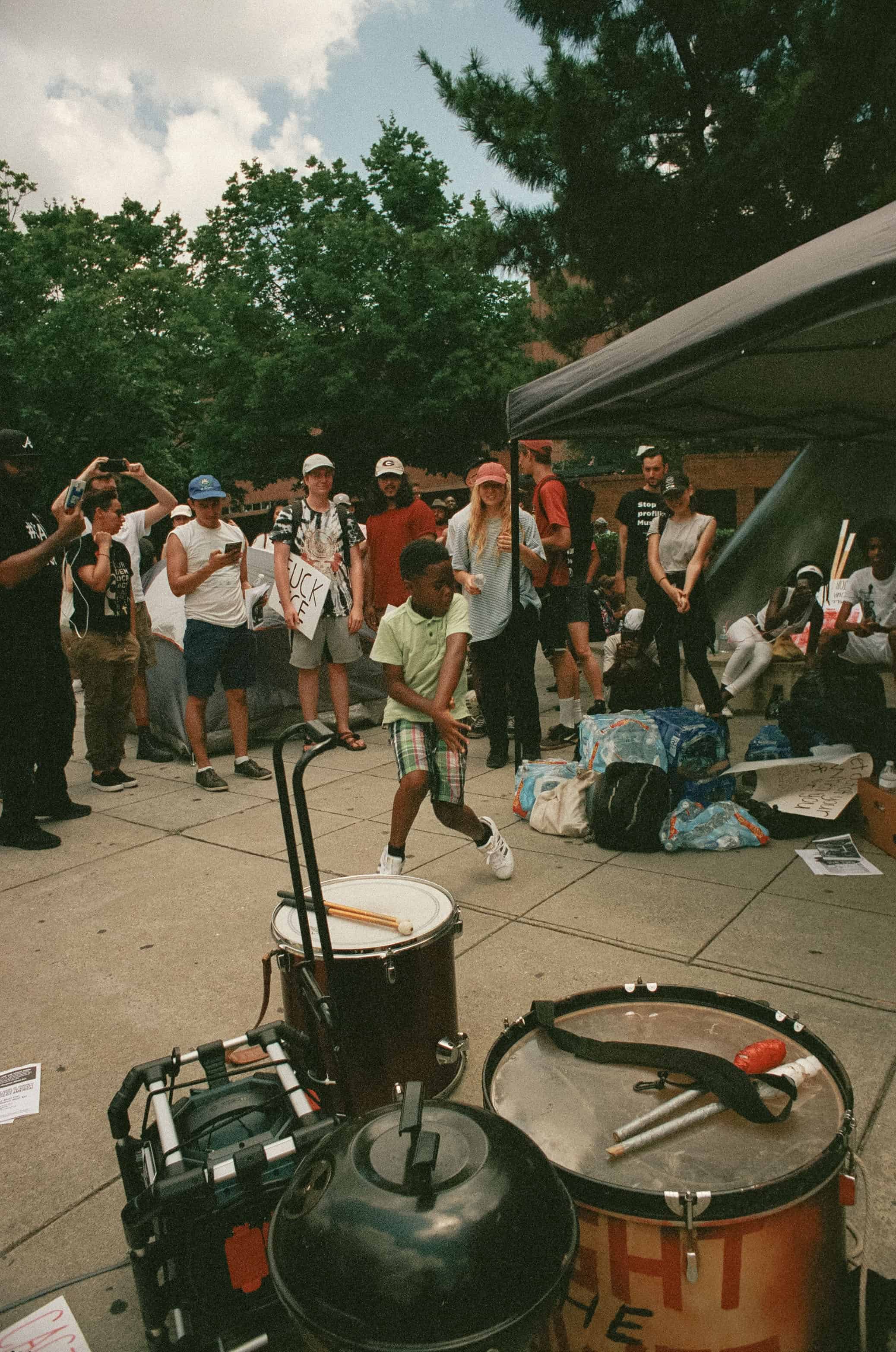





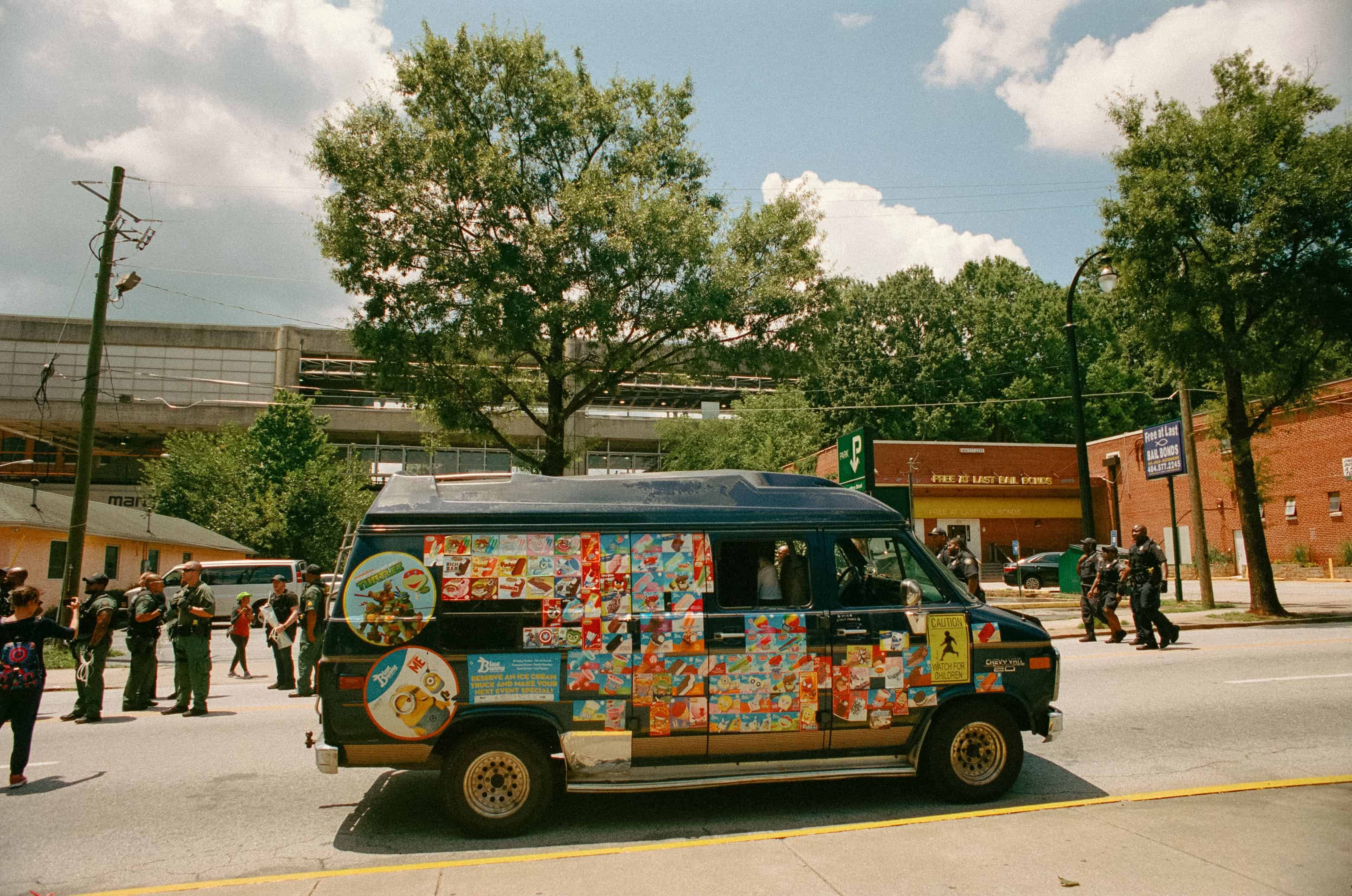



Molly Steele is an LA-based analog photographer originally out of the swamps of North Florida. Her work stimulates a discourse of intimacy, nature, and alternative lifestyles separate from the commercial status-quo. Through her style of surreal photo-journalism, her work promotes an ethereal, re-imagined way of relating; a transformation of experience itself.